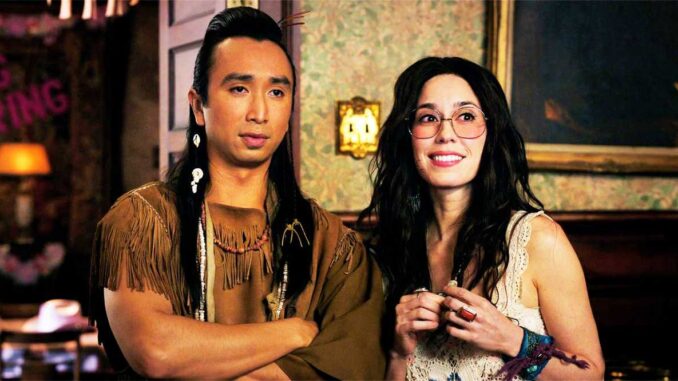
The Lingering Echoes: How "The Others" Informed Ghosts Season 5 (MD02)
Alejandro Amenábar's chilling masterpiece, "The Others," is more than just a ghost story; it's a masterclass in atmospheric suspense, psychological torment, and the unnerving blurring of reality and perception. Its impact on the genre is undeniable, and its echoes reverberate even within the seemingly lighter, more comedic world of "Ghosts" Season 5 (MD02). While the BBC series often opts for lighthearted humor and character-driven narratives, a closer examination reveals subtle but potent influences of "The Others" in its exploration of isolation, identity, and the unsettling nature of living alongside the spectral.
One of the most significant parallels lies in the theme of insular existence. In "The Others," Grace Stewart, driven by a desperate need to protect her photosensitive children from the sun, keeps her family confined within the shadowy walls of their Jersey estate. This enforced isolation, both physical and psychological, breeds paranoia and fuels the escalating sense of dread. Similarly, in "Ghosts" Season 5 (MD02), Button House remains a bubble, a liminal space where the living and the dead coexist but rarely interact with the outside world. While their confinement is less explicitly enforced, the ghosts are trapped by their own inability to move on, and Alison and Mike, the living couple, are often tethered to the house by financial necessity and their affection for its spectral inhabitants. This shared sense of being trapped within a specific location, cut off from the wider world, allows both narratives to explore the psychological impact of such limitations. The lack of external validation and the constant internal conflict breed suspicion, fear, and ultimately, a distorted perception of reality.
Furthermore, both "The Others" and "Ghosts" delve into the complex question of identity and belonging. In Amenábar's film, the shocking revelation that Grace and her children are the ghosts, not the living, completely shatters their understanding of themselves and their place in the world. This theme of questioning one's own reality and grappling with a shifting identity is present, albeit in a less dramatic form, in "Ghosts" Season 5 (MD02). The ghosts constantly struggle with their memories, their past lives, and their understanding of the present. They often grapple with feelings of inadequacy and the desire to connect with the living, yearning for recognition and validation. Captain Fawcett, in particular, undergoes a poignant exploration of his identity as a closeted homosexual, struggling with the internalized homophobia of his time and seeking acceptance from his housemates. The search for identity, whether in life or death, is a central theme in both narratives, highlighting the human (or spectral) need to understand and define oneself within a larger context.
Finally, "The Others" utilizes subtle but powerful storytelling techniques to create a sense of unease and ambiguity, a technique that occasionally surfaces in "Ghosts" Season 5 (MD02), particularly in its quieter moments. Amenábar relies heavily on shadows, whispers, and the unspoken to build tension, leaving the audience to fill in the blanks and imagine the horrors lurking just beyond the frame. While "Ghosts" primarily employs humor and witty dialogue, Season 5 (MD02) occasionally ventures into more introspective territory, using visual cues and subtle interactions to hint at the deeper complexities of the characters and their relationships. For instance, the recurring motif of fading memories and the ghosts' inability to fully recall their past lives creates a sense of melancholy and highlights the fragility of their existence. These moments, though often fleeting, demonstrate the influence of psychological thrillers like "The Others" in creating a richer and more nuanced viewing experience.
In conclusion, while "Ghosts" Season 5 (MD02) is undeniably a comedy at its core, the echoes of "The Others" are discernible in its exploration of isolation, identity, and the subtle techniques used to create a sense of unease. By examining the parallels between these two seemingly disparate narratives, we gain a deeper appreciation for the enduring power of "The Others" and its influence on the ghost story genre as a whole. The film's emphasis on psychological torment and the blurring of reality and perception continues to resonate in contemporary narratives, reminding us that the scariest monsters are often the ones within ourselves. "Ghosts" acknowledges this, albeit with a lighter touch, adding layers of depth and emotional resonance to its already compelling and hilarious portrayal of the afterlife. Ultimately, the enduring legacy of "The Others" lies in its ability to make us question what we see, what we believe, and ultimately, who we are – a question that even the cheerful ghosts of Button House occasionally grapple with.